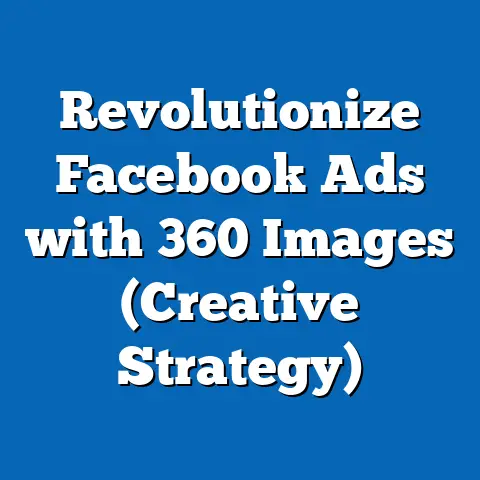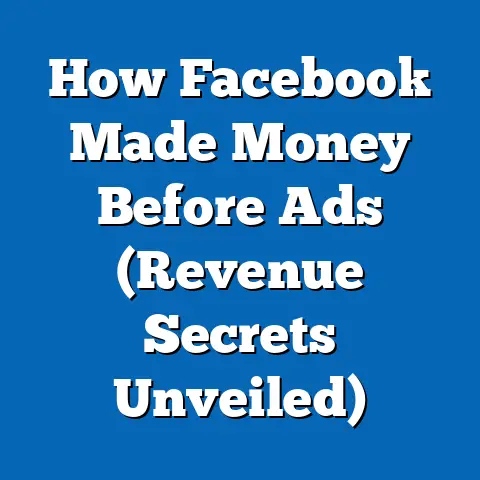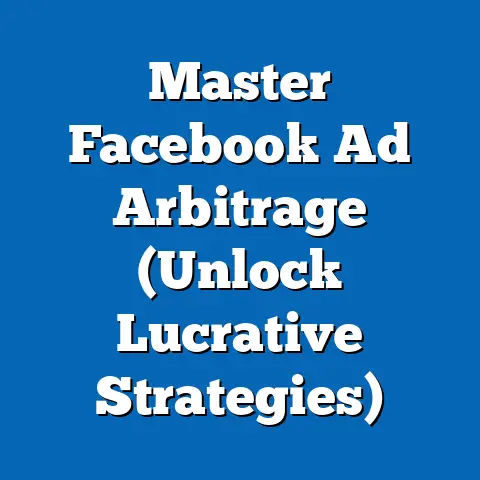Boost Lawyer Ads on Facebook (Expert Strategies Revealed)
In today’s fiercely competitive legal landscape, standing out from the crowd is paramount for law firms.
Digital marketing has become an indispensable tool, and Facebook, with its massive user base and sophisticated targeting capabilities, offers a powerful platform for reaching potential clients.
However, navigating the world of online advertising as a lawyer requires a delicate balance.
We need to be strategic, yes, but also scrupulously ethical and compliant with legal advertising regulations.
I’ve spent years helping businesses, including law firms, leverage the power of Facebook ads.
I’ve seen firsthand what works, what doesn’t, and, most importantly, where the potential pitfalls lie.
This guide is designed to provide you, the lawyer or legal marketer, with a comprehensive roadmap to creating effective and compliant Facebook ad campaigns.
We’ll delve into everything from setting up your business page to crafting compelling ad copy, all while keeping ethical considerations front and center.
This isn’t just about getting clicks; it’s about building trust, establishing authority, and ultimately, growing your client base the right way.
Section 1: Understanding the Legal Advertising Landscape
Advertising for legal services is a unique beast.
It’s not like selling shoes or offering a discount on pizza.
We’re dealing with people’s lives, their livelihoods, and often, their deepest anxieties.
That’s why the legal profession is governed by a strict set of ethical rules, and those rules extend to how we advertise our services.
The Regulatory Environment: ABA Model Rules and State-Specific Regulations
The foundation of legal ethics in the United States is the American Bar Association (ABA) Model Rules of Professional Conduct.
While these rules aren’t directly enforceable, they serve as a template for state bar associations, which adopt, modify, and enforce their own versions.
Rule 7.1, regarding communications about legal services, is particularly relevant to advertising.
It prohibits lawyers from making false or misleading statements about themselves or their services.
This includes:
- Untruthful claims: Exaggerating your success rates or guaranteeing specific outcomes.
- Misleading comparisons: Implying superiority over other lawyers without factual basis.
- Omitted information: Failing to disclose important limitations or qualifications.
Beyond the ABA Model Rules, each state has its own specific regulations governing legal advertising.
These can vary significantly, so it’s crucial to familiarize yourself with the rules in the states where you practice.
Some states require pre-approval of advertisements by the state bar, while others have specific requirements for disclaimers or disclosures.
My Experience: I once worked with a law firm that ran a Facebook ad promising “Guaranteed Results” in personal injury cases.
While they had a strong track record, guaranteeing outcomes is a big no-no.
I had to work with them to reword the ad to focus on their experience and dedication to fighting for their clients’ rights, rather than making a misleading guarantee.
Takeaway: Always consult your state’s rules of professional conduct before launching any advertising campaign.
Ignorance of the law is no excuse, and violating these rules can lead to disciplinary action.
Common Pitfalls: Misleading Claims and Privacy Concerns
Even with a thorough understanding of the regulations, it’s easy to stumble when advertising on Facebook.
Here are some common pitfalls to avoid:
- Testimonials: Using client testimonials that imply specific results or create unrealistic expectations.
- “No Win, No Fee” Claims: Clearly disclosing the terms and conditions of contingency fee arrangements.
- Privacy Violations: Collecting or using client information without proper consent or security measures.
- Creating a Sense of Urgency Inappropriately: Legal problems are serious, and creating a false sense of panic is unethical.
Facebook’s own advertising policies also play a role.
They prohibit ads that are discriminatory, misleading, or that violate user privacy.
It’s essential to review these policies regularly, as they are subject to change.
Takeaway: Transparency and accuracy are paramount.
Avoid making claims you can’t substantiate, and always prioritize client privacy.
Maintaining Client Confidentiality and Ethical Practices
Client confidentiality is the cornerstone of the attorney-client relationship.
It’s not just a legal obligation; it’s a moral one.
Any advertising campaign must respect this confidentiality.
- Avoid Discussing Specific Cases: Never reveal details about your clients’ cases in your ads.
- Use Stock Photos Wisely: Ensure that images used in your ads do not inadvertently identify or depict actual clients.
- Secure Client Data: Implement robust security measures to protect client information collected through lead generation forms or website tracking.
Takeaway: Ethical advertising is not just about avoiding legal trouble; it’s about upholding the integrity of the legal profession and building trust with potential clients.
Section 2: Setting Up Effective Facebook Ads for Lawyers
Now that we’ve covered the ethical landscape, let’s dive into the practical steps of setting up your Facebook ads.
Creating a Facebook Business Page Tailored for Lawyers
Your Facebook Business Page is your online storefront.
It’s the first impression many potential clients will have of your firm, so it needs to be professional, informative, and engaging.
- Choose the Right Category: Select the “Lawyer & Law Firm” category when creating your page.
This helps Facebook understand your business and target relevant users. - Craft a Compelling “About” Section: Clearly describe your firm’s areas of practice, experience, and mission.
Highlight what makes you unique and why clients should choose you. - Use High-Quality Visuals: Your profile and cover photos should be professional and visually appealing.
Consider using a photo of your team or a well-designed logo. - Include Contact Information: Make it easy for potential clients to contact you.
Include your phone number, email address, website, and physical address (if applicable). - Enable Reviews and Ratings: Encourage satisfied clients to leave reviews on your page.
Positive reviews build trust and credibility.
My Tip: I always recommend including a brief video introduction on your Business Page.
It’s a great way to personalize your firm and connect with potential clients on a deeper level.
The Importance of a Professional Appearance
First impressions matter. A well-designed and maintained Facebook Business Page conveys professionalism and competence.
- Consistent Branding: Use consistent colors, fonts, and imagery across your page and ads to reinforce your brand identity.
- Regular Updates: Keep your page fresh with regular posts about your firm’s activities, legal news, and helpful resources.
- Responsive Engagement: Respond promptly to comments and messages from potential clients.
This shows that you value their inquiries.
Takeaway: Your Facebook Business Page is an extension of your firm’s brand.
Treat it with the same care and attention you would give to your physical office.
Setting Up Facebook Ads Manager for Law Firms
Facebook Ads Manager is your control center for creating and managing your ad campaigns.
- Access Ads Manager: Navigate to facebook.com/adsmanager.
- Create an Ad Account: If you don’t already have one, create an ad account and link it to your Business Page.
- Define Your Campaign Objective: Choose the objective that aligns with your goals, such as lead generation, website traffic, or brand awareness.
- Set Your Budget and Schedule: Determine how much you’re willing to spend and how long you want your campaign to run.
- Define Your Target Audience: Use Facebook’s targeting options to reach the right people with your ads.
We’ll delve into this in more detail in the next section.
My Experience: I’ve found that starting with a small budget and gradually increasing it as you optimize your campaign is a good approach.
This allows you to test different ad variations and targeting options without breaking the bank.
Takeaway: Facebook Ads Manager can seem daunting at first, but it’s a powerful tool for reaching your target audience and achieving your advertising goals.
Section 3: Targeting the Right Audience
Reaching the right people is crucial for the success of your Facebook ad campaigns.
Facebook offers a wealth of targeting options, allowing you to narrow your audience based on demographics, interests, behaviors, and more.
Exploring Facebook’s Advanced Targeting Options
Here’s a breakdown of some of the key targeting options available on Facebook:
- Demographics: Target users based on age, gender, location, education, relationship status, and job title.
- Interests: Reach users who have expressed interest in specific topics, such as law, finance, or real estate.
- Behaviors: Target users based on their online activities, such as purchasing habits, device usage, and travel patterns.
- Custom Audiences: Upload your own customer lists to create targeted audiences based on existing clients or leads.
- Lookalike Audiences: Expand your reach by targeting users who are similar to your existing customers or leads.
My Tip: Don’t be afraid to experiment with different targeting options to see what works best for your firm.
A/B testing can help you identify the most effective audiences for your ads.
Identifying and Targeting Potential Clients
The key to effective targeting is understanding your ideal client.
What are their demographics?
What are their interests?
What are their pain points?
- Family Law: Target users who are recently married, divorced, or have children.
Interests might include parenting, relationships, and family planning. - Personal Injury: Target users who have expressed interest in health, wellness, or legal services.
Behaviors might include those who have recently visited accident-related websites. - Criminal Defense: Targeting for criminal defense can be tricky due to privacy concerns.
Focus on broad demographic targeting and relevant interests, such as legal news or civil rights.
My Experience: I worked with a family law firm that successfully used Facebook ads to reach potential clients going through a divorce.
They targeted users who had recently changed their relationship status to “Divorced” and offered a free consultation to discuss their legal options.
Takeaway: The more specific you can be with your targeting, the more likely you are to reach potential clients who are genuinely interested in your services.
Tailoring Ad Content to Resonate with Specific Legal Needs
Your ad content should speak directly to the needs and concerns of your target audience.
- Family Law: Focus on empathy and understanding.
Highlight your ability to navigate complex family issues with compassion and expertise. - Personal Injury: Emphasize your experience in fighting for the rights of injured victims.
Showcase your track record of successful settlements and verdicts. - Criminal Defense: Highlight your commitment to protecting the rights of the accused.
Emphasize your knowledge of the law and your ability to build a strong defense.
Takeaway: Your ads should not only be informative but also emotionally resonant.
Connect with potential clients on a human level by addressing their specific needs and concerns.
Section 4: Crafting Compelling Ad Content
Your ad content is your opportunity to grab attention, convey your value proposition, and persuade potential clients to take action.
Creating Engaging Visuals or Videos
Visuals can make or break your ad.
Use high-quality images or videos that are relevant to your services and target audience.
- Professional Photos: Use professional photos of your team or your office.
- Client Success Stories: Create videos featuring client testimonials (with their consent, of course).
- Informative Graphics: Use graphics to explain complex legal concepts in a clear and concise way.
My Experience: I worked with a personal injury firm that created a series of video ads featuring real clients who had been injured in car accidents.
The ads were incredibly effective because they were authentic and emotionally compelling.
Takeaway: Visuals are a powerful way to connect with potential clients and convey your message in a memorable way.
Examples of Successful Ad Formats for Lawyers
Facebook offers a variety of ad formats, each with its own strengths and weaknesses.
Here are some of the most effective ad formats for lawyers:
- Carousel Ads: Showcase multiple images or videos in a single ad, allowing you to highlight different areas of practice or client success stories.
- Lead Generation Forms: Collect leads directly from Facebook by using a pre-populated form that users can fill out with just a few clicks.
- Video Ads: Use video to tell your story, showcase your expertise, and connect with potential clients on a deeper level.
- Image Ads: Simple and effective, image ads can be used to promote your services or offer a free consultation.
My Recommendation: Lead generation forms are particularly effective for lawyers because they allow you to collect valuable contact information from potential clients without requiring them to leave Facebook.
Section 5: Leveraging Facebook Insights and Analytics
Tracking your ad performance is essential for optimizing your campaigns and maximizing your ROI.
Facebook Insights provides a wealth of data about your audience, your ad performance, and your overall campaign effectiveness.
Using Facebook Insights to Track Ad Performance
To access Facebook Insights, navigate to your Business Page and click on the “Insights” tab.
Here, you’ll find a variety of metrics that can help you understand how your ads are performing.
- Reach: The number of unique users who saw your ad.
- Impressions: The number of times your ad was displayed.
- Click-Through Rate (CTR): The percentage of users who clicked on your ad.
- Conversion Rate: The percentage of users who completed a desired action, such as filling out a lead generation form or visiting your website.
- Cost Per Lead (CPL): The average cost of acquiring a lead through your Facebook ads.
My Tip: Pay close attention to your CTR and conversion rate.
These metrics indicate how effectively your ads are resonating with your target audience.
Key Metrics to Monitor
Here are some of the most important metrics to monitor when tracking your Facebook ad performance:
- Relevance Score: A score from 1 to 10 that indicates how relevant your ad is to your target audience.
- Frequency: The average number of times a user saw your ad.
- Return on Ad Spend (ROAS): The amount of revenue generated for every dollar spent on advertising.
My Experience: I worked with a law firm that saw a significant improvement in their ad performance after they started monitoring their Relevance Score.
They used this metric to identify ads that were not resonating with their target audience and made adjustments accordingly.
Takeaway: Data is your friend.
Use Facebook Insights to track your ad performance and identify areas for improvement.
Strategies for Adjusting Campaigns Based on Data Analysis
Based on your data analysis, you can make adjustments to your campaigns to improve their performance.
- Refine Your Targeting: If your ads are not reaching the right people, refine your targeting options.
- Improve Your Ad Copy: If your CTR is low, experiment with different headlines, body text, and calls to action.
- Update Your Visuals: If your ads are not visually appealing, try using different images or videos.
- Adjust Your Budget: If your CPL is too high, consider reducing your budget or refining your targeting.
My Recommendation: A/B testing is a powerful way to identify the most effective ad variations.
Test different headlines, visuals, and calls to action to see what resonates best with your target audience.
Section 6: Advanced Strategies for Maximizing Ad Reach
Once you’ve mastered the basics of Facebook advertising, you can explore some advanced strategies to maximize your ad reach and generate even more leads.
Retargeting Past Website Visitors
Retargeting allows you to show ads to people who have previously visited your website or interacted with your Facebook page.
This is a highly effective strategy because you’re targeting people who are already familiar with your brand.
- Website Retargeting: Show ads to people who have visited specific pages on your website, such as your contact page or your areas of practice page.
- Facebook Page Retargeting: Show ads to people who have liked your Facebook page, commented on your posts, or watched your videos.
My Tip: Offer a special discount or a free consultation to people who are retargeted.
This can incentivize them to take action.
Leveraging Facebook Groups
Facebook Groups can be a powerful tool for building community and generating referrals.
- Create Your Own Group: Create a group focused on a specific area of law, such as family law or personal injury.
Share helpful information, answer questions, and engage with members. - Join Relevant Groups: Join groups that are relevant to your target audience, such as local community groups or groups for parents.
Participate in discussions and offer your expertise.
My Experience: I worked with a law firm that created a Facebook Group for parents going through a divorce.
The group quickly became a valuable resource for members, and the firm generated a significant number of leads through the group.
Takeaway: Facebook Groups can be a great way to build relationships, establish authority, and generate leads.
Integrating Facebook Ads with Other Marketing Strategies
Facebook ads should not be viewed in isolation.
They should be integrated with your other marketing strategies, such as email marketing and content marketing.
- Email Marketing: Collect email addresses through your Facebook ads and use email marketing to nurture leads and promote your services.
- Content Marketing: Create valuable content, such as blog posts, articles, and videos, and share it on your Facebook page and in your ads.
My Recommendation: Create a landing page on your website that is specifically designed for your Facebook ads.
This will improve your conversion rate and provide a better user experience.
Conclusion
Facebook advertising can be a powerful tool for lawyers looking to grow their client base.
However, it’s essential to approach it strategically, ethically, and compliantly.
By understanding the legal advertising landscape, setting up effective campaigns, targeting the right audience, crafting compelling ad content, leveraging Facebook Insights, and exploring advanced strategies, you can boost your ads and achieve your advertising goals.
Remember, ethical advertising is not just about avoiding legal trouble; it’s about upholding the integrity of the legal profession and building trust with potential clients.
By prioritizing ethics and compliance, you can build a sustainable and successful Facebook advertising strategy.
Now it’s your turn.
Take the strategies I’ve shared today and implement them in your own Facebook ad campaigns.
Track your results, analyze your data, and continuously improve your approach.
The world of Facebook advertising is constantly evolving, so it’s important to stay informed and adapt to the latest trends and best practices.
Good luck!






